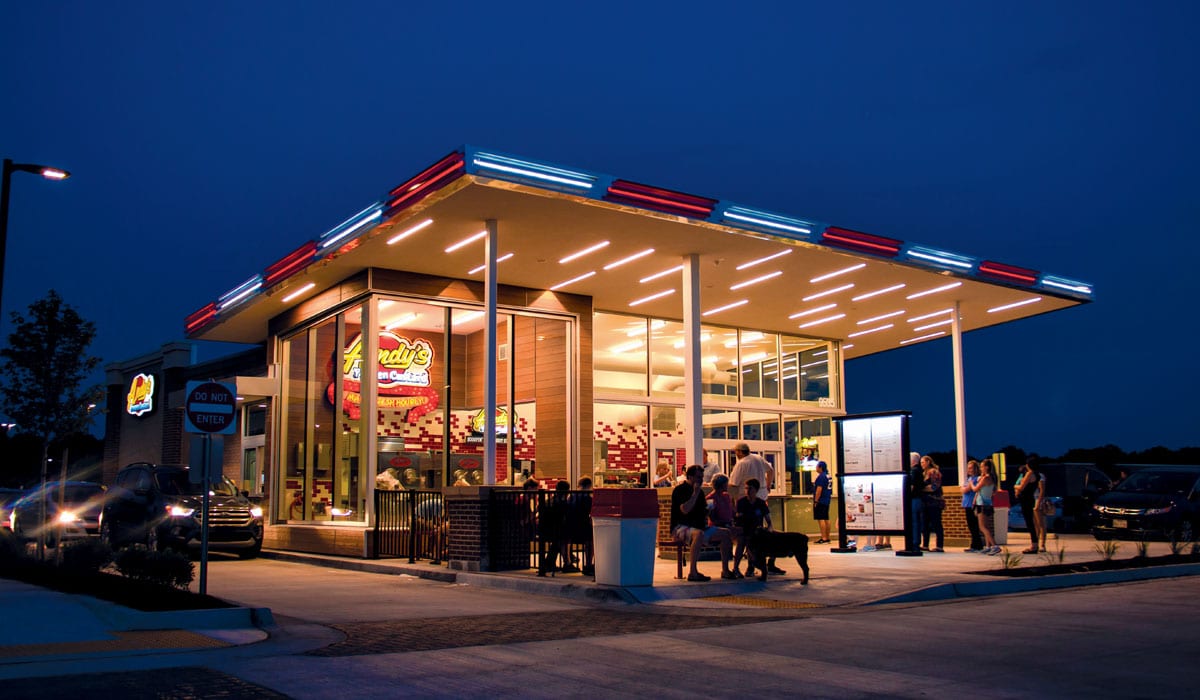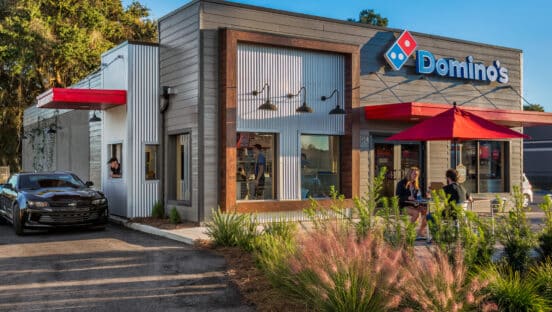
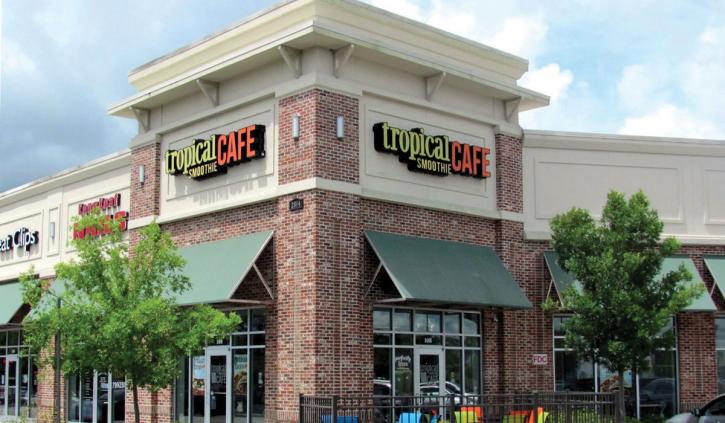
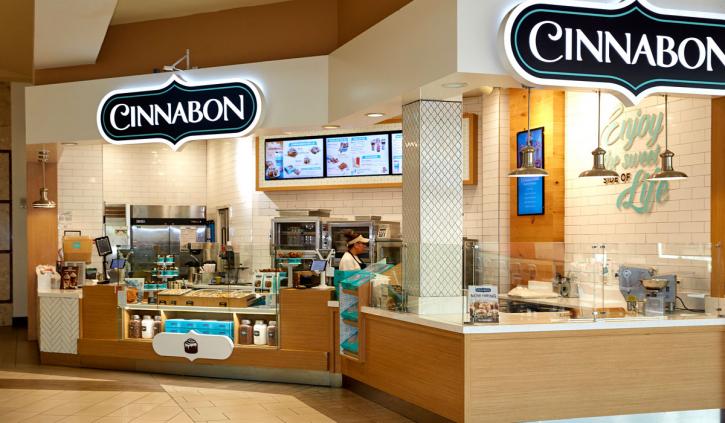
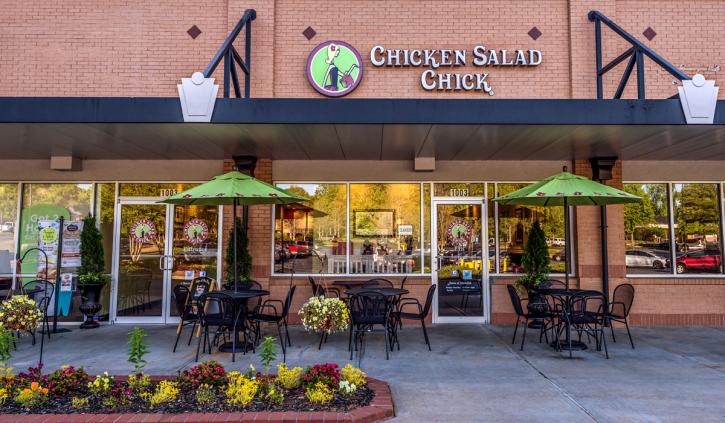
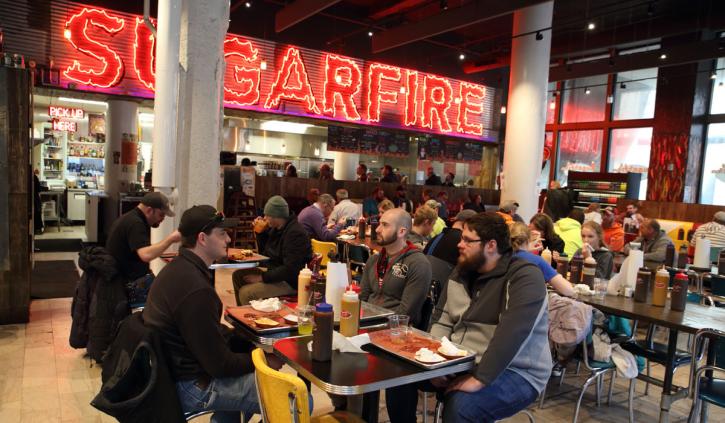
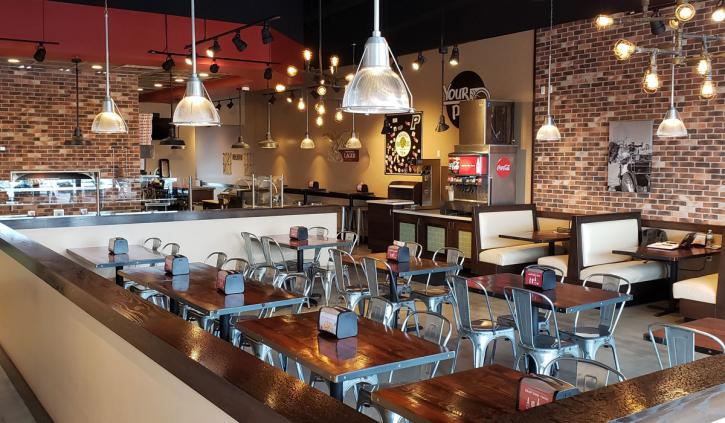
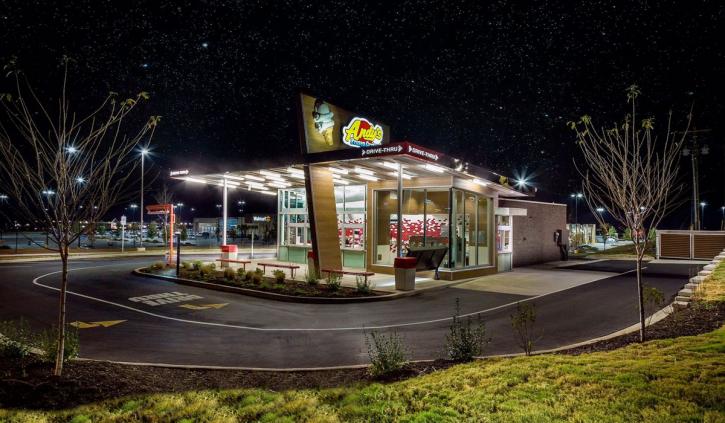
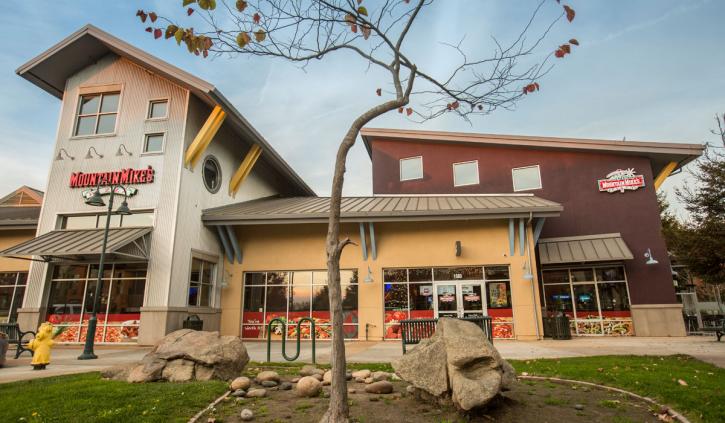
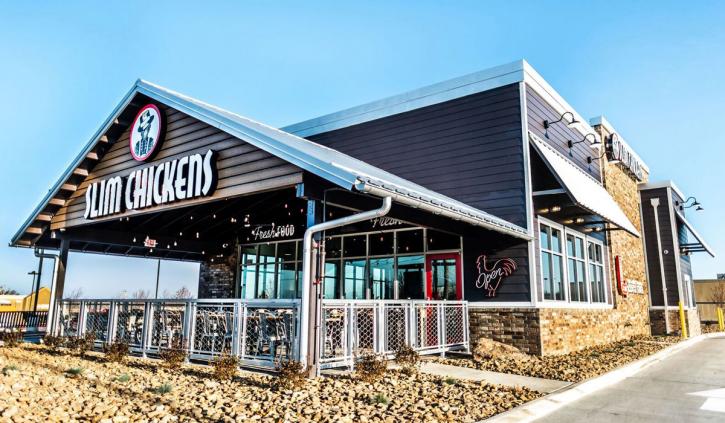
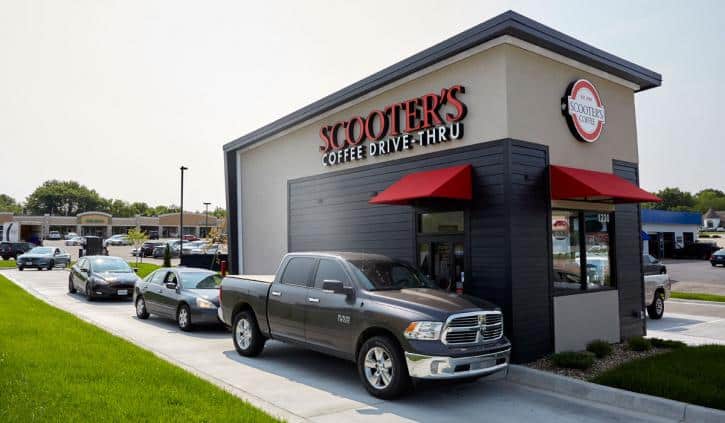
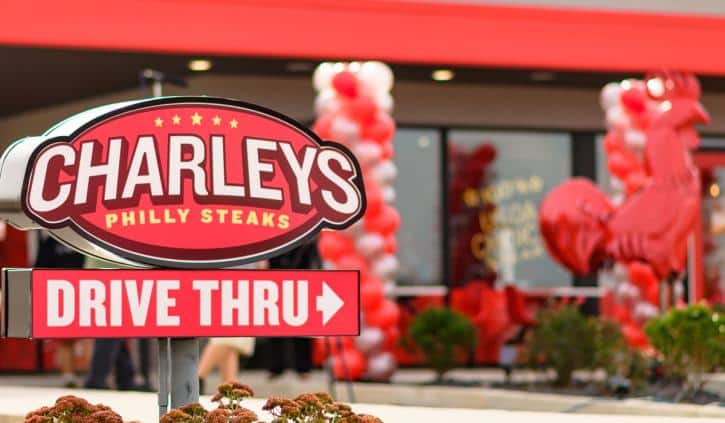
Franchising in a new frontier
Solid financials have always been a priority for franchisees looking for the next brand to add to their portfolios. And a wide range of incentives has become a nice way for foodservice brands to appeal to new franchise partners. But now more than ever, a great partnership between franchisee and franchisor has become a critical selling point for any limited-service company hoping to expand through franchising.
The COVID-19 pandemic has forced corporate teams and store operators to huddle together in developing new systems, strategies, and messages as they fight to keep sales up and brand momentum alive. And moving forward, any franchisee looking to build their portfolio will no doubt be looking for robust support from the franchisor to navigate uncertain times. Once again, we recruited a council of franchise experts to help us select the Best Franchise Deals in quick service and fast casual. And while financials were top-of-mind in making these picks, we also prioritized concepts that had reputations for strong franchisor support, not to mention a unique selling point for the post-pandemic foodservice landscape.
Check out past reports:
Tropical Smoothie Café
Total U.S. units: 834
U.S. franchise units: 833
System-wide sales: $576,812,566
Franchise AUV: $768,831
Franchise fee: $30,000
Total start-up costs: $198,500–$543,500
Royalty: 6% of gross sales
Renewal fee: None
Marketing fee: 3% of gross sales
The skinny: Not only does Tropical Smoothie Café offer an appealing return on a relatively low investment, but it also has genuine momentum as it continues to plant roots across the U.S. Same-store sales have grown for eight straight years, including a 5.7 percent jump in 2019, and last year the company opened more stores and sold more franchise agreements than ever before.
The selling point: With COVID-19 putting individual health and wellness in the national spotlight, Tropical Smoothie provides a variety of better-for-you products that will be in high demand. And the owners seem to be happy with their investment; about 60 percent of unit growth comes from existing franchisees. That’s a reflection of the corporate team’s support, which includes frequent communication with owners and brand-wide committees that meet regularly on a variety of topics, from marketing to technology and beyond.
Council’s take: “They are a growth juggernaut. It’s a moderate investment with superior returns and dramatic growth. I also like their labor model in relation to other concepts on the list.”
Cinnabon
Total U.S. units: 938
U.S. franchise units: 937
System-wide sales: $201,908,500
Franchise AUV: $548,909 (enclosed mall units)
Franchise fee: $30,000 (full bakery)
Total start-up costs: $122,500–$430,900 (full bakery)
Royalty: 6% (full bakery)
Renewal fee: 10% of initial franchise fee
Marketing fee: 1.5% of net sales
The skinny: Cinnabon has been an American staple now for 35 years, and is an icon in indulgence, particularly in nontraditional real estate like airports and malls. A repeat Best Franchise Deal honoree, Cinnabon has attractive financials, a best-in-class product, and a corporate parent (FOCUS Brands) that can pull resources from several other foodservice concepts.
The selling point: Even while Americans pursue better-for-you options, they’ll never give up on their once-in-a-while indulgences, which Cinnabon is perfectly tailored to meet. The brand also gets away with a very small footprint, which will come in handy over the coming years as companies prioritize smaller real estate powered by off-premises sales.
Council’s take: “A lower initial investment than most quick serves, but still plenty of upside from an earnings standpoint. Average net operating income is pretty strong for the industry, and a good percentage of franchisees seem to be above the system average.”
Chicken Salad Chick
Total U.S. units: 144
U.S. franchise units: 108
System-wide sales: $153,300,000
Franchise AUV: $1,138,652
Franchise fee: $50,000
Total start-up costs: $562,000–$740,000
Royalty: 5% of gross sales
Renewal fee: $3,500
Marketing fee: $10,000
The skinny: Though its menu may seem niche, Chicken Salad Chick has exploded to about 150 locations doing, on average, over $1 million in sales. Owning the chicken-salad category doesn’t hurt, nor does the product’s grab-and-go potential, which has helped Chicken Salad Chick maintain sales through the coronavirus pandemic. The brand now has a presence in 16 states, and last year the private equity firm Brentwood Associates acquired a majority stake to help facilitate growth.
The selling point: Chicken will never go out of fashion in the U.S., and by focusing on chicken salad, Chicken Salad Chick has virtually no competition. The brand also has easily transitioned to off-premises business with its Quick Chick pre-packaged items.
Council’s take: “They are targeting and obtaining the highly desirable Chick-fil-A customer. I believe it is a brand that shows potential for new market entry due to having a unique product offering.”
Sugarfire Smokehouse
Total U.S. units: 15
U.S. franchise units: 14
System-wide sales: $27,434,668 (for 10 locations open all of 2019)
Franchise AUV: $2,042,891
Franchise fee: $50,000
Total start-up costs: $719,599–$1,184,000
Royalty: 4%
Renewal fee: 25% of then-current franchise fee
Marketing fee: Greater of $5,000 per month or 2% of gross sales
The skinny: The smallest brand on this list, Sugarfire has only been in business for about a decade but has already grown to 15 locations doing an impressive $2 million-plus in average unit volume. That’s good for a sales-to-investment ratio of about three-to-one, while financial requirements like royalty and marketing fee are comparably low for the industry.
The selling point: Barbecue remains a fairly niche foodservice category, meaning competition is thin across most of the U.S. Sugarfire specializes in St. Louis–style barbecue, separating it from major competitors like Dickey’s, Mission BBQ, and City Barbeque, and its premium fast-casual model—an affordable yet comfortable experience—could enjoy a business boom once customer confidence returns in dining out.
Council’s take: “For an emerging brand, they seem headed in the right direction. The fees are reasonable and their training program is extra robust.”
Your Pie
Total U.S. units: 77
U.S. franchise units: 77
System-wide sales: $35,219,445
Franchise AUV: $735,453
Franchise fee: $35,000
Total start-up costs: $360,250–$704,000
Royalty: 5%
Renewal fee: $10,000
Marketing fee: 1%
The skinny: Blaze Pizza and MOD Pizza may dominate the fast-casual pizza category, but Your Pie was the first such brand when it opened in 2008. Start-up costs are comparably low, making Your Pie an attractive proposition especially for more local, independent operators. The brand has also found success in more tertiary markets than some of its competitors, proving that there is enormous growth potential across the U.S.
The selling point: Pizza proved to be bulletproof during the spread of COVID-19, and is poised for strong growth even if economic troubles persist for years. In addition, Your Pie’s support center provides a high level of support at every step of the development process, including site selection, training, marketing, technology, and ongoing operations.
Council’s take: “The brand name is strong and they have a loyal customer base. The product is high-quality. Financials, fees, and incentives are all healthy and appealing.”
Andy’s Frozen Custard
Total U.S. units: 86
U.S. franchise units: 49
System-wide sales: $88,276,821
Franchise AUV: $1,102,485
Franchise fee: $42,000 initial; $28,000 for additional stores
Total start-up costs: $622,000–$1,980,500
Royalty: 6% initially, can scale to 4%
Renewal fee: Franchisees eligible for 5-year renewal at no cost
Marketing fee: 1%
The skinny: Serving high-quality frozen custard for more than 30 years, Andy’s offers a family-friendly, slice-of-Americana experience with impressive results to show for it. But it’s not just a great return on the investment that franchisees can look forward to; they can also be encouraged by the company’s supportive marketing team with decades of industry experience, and its Franchise Tool Kit that provides on-site support, corporate training systems, and customized coaching.
The selling point: Americans love dessert, and the category is perfectly positioned to comfort consumers in a highly anxious season—so long as brands can serve off-premises. Not only does Andy’s do a bulk of its sales through the drive thru (and the rest through a walk-up window), but, in custard, it also serves a more novelty item that isn’t available in most communities.
Council’s take: “System-wide sales and unit-volume figures stood out for what is a novelty dessert brand. A massive following in the Midwest area could easily extend to other regions based on how other markets have embraced custard.”
Mountain Mike’s
Total U.S. units: 215
U.S. franchise units: 215
System-wide sales: $181,875,000
Franchise AUV: $882,175
Franchise fee: $30,000
Total start-up costs: $208,020–$593,520
Royalty: 5%
Renewal fee: 50% of then-current franchise fee
Marketing fee: 3%
The skinny: While it’s not fast-casual pizza in the strictest definition of the term, Mountain Mike’s still occupies a level above the major pizza chains. It has new energy behind it with its co-leaders of Chris Britt and Ed St. Geme, who acquired the brand in 2017 and set about reinvigorating the legacy chain. That includes a national franchise support center, as well as a brand-new store prototype that doubles down on a family-friendly atmosphere—something that will surely be in high demand once social-distancing measures ease.
The selling point: Two words: Pizza franchise. Seriously, pizza is the surest bet in the industry right now, and in a world rife with trendy fast-casual options, Mountain Mike’s offers something different than both the build-your-own guys and the major concepts, while maintaining affordability.
Council’s take: “The veteran’s incentive is impressive. Financials look good, and the cost of entry is lower.”
Slim Chickens
Total U.S. units: 94
U.S. franchise units: 71
System-wide sales: $121,000,000
Franchise AUV: $1,484,099
Franchise fee: $15,000
Total start-up costs: $841,900–$1,739,000
Royalty: 5%
Renewal fee: 25% of then-current franchise fee
Marketing fee: 1.5%
The skinny: The higher end of Slim Chickens’ start-up costs may be comparably steep for the industry, but with modern branding, strong unit economics, a passionate executive team, simple operations, and strong franchisee support, the fast casual is built to provide a quick return. And with its geographic footprint primarily in the South, there’s still plenty of white space ahead of it for expansion.
The selling point: Brands like Chick-fil-A, Raising Cane’s, and Zaxby’s prove there is no limit to Americans’ love for high-quality chicken—especially high-quality chicken served via drive thru. Slim Chickens is likely the next franchise concept to join the ranks of beloved chicken joints.
Council’s take: “While the start-up costs are certainly more expensive than many other brands, the return is strong. Meanwhile, the brand positioning as a fast-casual, off-premises-forward chicken chain is appealing for anyone looking for expansion potential.”
Scooter’s Coffee
Total U.S. units: 266
U.S. franchise units: 238
System-wide sales: $105,000,000
Franchise AUV: $473,013
Franchise fee: $40,000
Total start-up costs: $389,942–$860,654
Royalty: 6% of gross sales
Renewal fee: Greater of $10,000 or 25% of then-current initial franchise fee
Marketing fee: 2% of gross sales
The skinny: Landing on the Best Franchise Deals list for the second year in a row, Scooter’s is riding its drive-thru kiosk model, responsibly sourced coffee, and commitment to fast, friendly service to explosive growth. The brand has enjoyed six years of same-store sales growth, and last year increased the system size by 31 percent.
The selling point: Drive thru is enjoying a renaissance in a socially distant world, and Scooter’s 550-square-foot drive-thru kiosk is perfectly positioned to meet the post-pandemic reality. And with Starbucks and Dunkin’ having tapped out most of their growth opportunities, there’s room for emerging coffee brands to jump into the competition and steal market share with an efficient, quality product.
Council’s take: “It’s a sustainable business model perfectly positioned to dominate during and after COVID with kiosk-style and drive-thru-only locations.”
Charleys Philly Steaks
Total U.S. units: 549
U.S. franchise units: 492
System-wide sales: $445,000,000
Franchise AUV: $827,285
Franchise fee: $24,500
Total start-up costs: $458,996–$637,568
Royalty: 6%
Renewal fee: $10,000
Marketing fee: 4%
The skinny: Charleys’ favorable financials are attractive on paper, but the proof is also in the pudding: Seventy percent of growth comes from existing franchisees. The brand has prioritized nontraditional locations like malls and airports in the past, but it’s now turning its attention to traditional sites, as well, and hopes to open hundreds if not thousands of locations in the coming years.
The selling point: With robust experience in the nontraditional space, Charleys is a highly efficient concept that’s already adept at running out of small spaces—a necessity in the post-COVID world that prioritizes off-premises service. And now it’s taking that experience to more street-level locations, which could help position it as a solid competitive threat to Jersey Mike’s and Firehouse Subs.
Council’s take: “The buildout and overall investment is lower than many other quick-service opportunities. They are especially relevant for nontraditional deals such as airports.”

